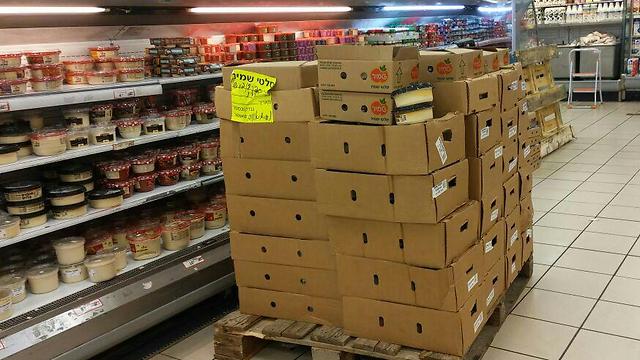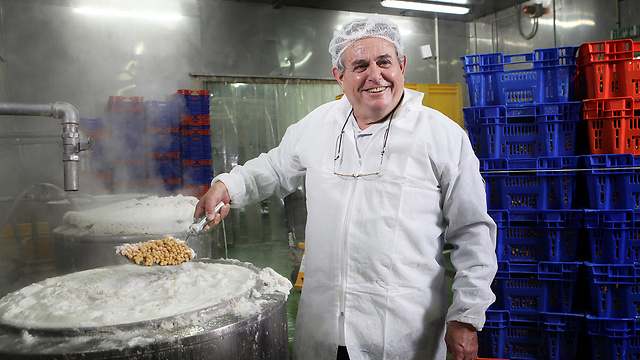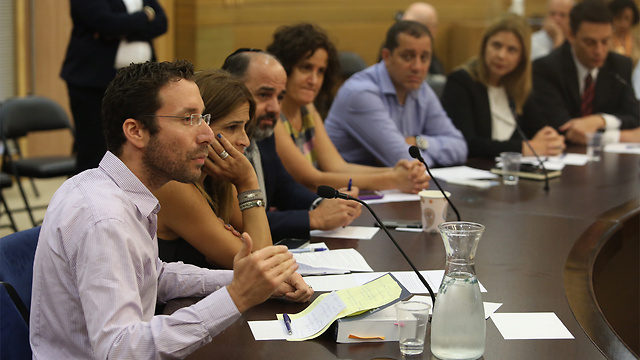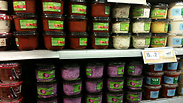
Salmonella, brucella outbreaks lead to recall, hospitalization
Shamir Salads recalls products after Health Ministry inspection found a problem in the production line of Prince Tahina, which provides the raw products for the company; Health Ministry orders the destruction of 4 tons of camel's milk after two children hospitalized after drinking Brereshit Milk.
Shamir Salads announced a general recall of its products on Thursday after learning its provider of raw product, Prince Tahina, found evidence of salmonella on its production line.
Shamir Salads produces salads for many supermarket chains under the private brands Yesh, Shufersal, Bitan Wines, Yohananof, and Hamutag.
Health Ministry representatives have recently conducted an inspection at the Prince Tahina factory over the suspected presence of salmonella. Initial results indicated a problem in the production line, leading the company to destroy about 200 tons of raw tahini, as well as notify its customers.
Shamir Salads is asking all customers not to consume the following products, according to their listed expiration dates:
- All hummus products under the brands Shufersal, Yesh, Shamir, Asli, Hamutag, Delicatessen, Salatei Habayit, Yohananof and Piknik with expiration dates of 1.9.16 to 18.9.16
- All tahini products under the brands Shufersal, Yesh, Shamir, Asli, Hamutag, Delicatessen, Salatei Habayit, Yohananof and Piknik with expiration dates of 16.9.16 to 3.10.16
- All eggplant in tahini products under the brands Shufersal, Yesh, Shamir, Asli, Hamutag, Delicatessen, Salatei Habayit, Yohananof and Piknik with expiration dates of 1.9.16 to 18.9.16
Customers who have purchased products on the list are asked to contact customer service by telephone at 03-9067744.
"The issue was discovered on the production line of one-ton pallets after tests were conducted," Prince Tahina said in a statement. "The issue was fixed and customers, as well as the Ministry of Health, were notified. Other company products were found to be completely clear (of salmonella). The Prince Tahina company manufactures and markets tahini products according to high quality standards for years. Prince Tahina accepts full responsibility for the problem and is working with full transparency with the customers, suppliers and the Ministry of Health."
The Shufersal supermarkets chain said "after being notified this morning by Shamir Salads, it was decided to initiate a recall on all products made by Prince Tahina. It is important to emphasize that products from Shufersal's private label are checked regularly and only marketed following quality control tests. We are very careful when it comes to the health of our customers and as a result decided to recall the products. We apologize for the inconvenience."
Shufersal added, "customers who purchased the relevant products and are interested in returning them and receiving a full reimbursement are encouraged to turn to any Shufersal branch or call our customer service line at 1-800-68-68-68."
This outbreak of salmonella comes at a difficult time, as Unilever has been working to contain a salmonella outbreak at their cereal plant, a Knesset committee was convened on Thursday morning to discuss the incident, and an outbreak of brucellosis in Brereshit Milk producted has put two children in the hospital.
The two children were admitted to Ichilov Hospital in light-to-moderate condition, suffering from brucellosis after drinking camel's milk produced by Brereshit Milk.
The bacteria is spread from animals to humans directly by touch or by drinking unpasteurized milk from an infected animal.
Following their hospitalization, the Ministry of Health ordered the destruction of four tons of the camel's milk and raided moshav Sitria where the milk is produced and distributed.
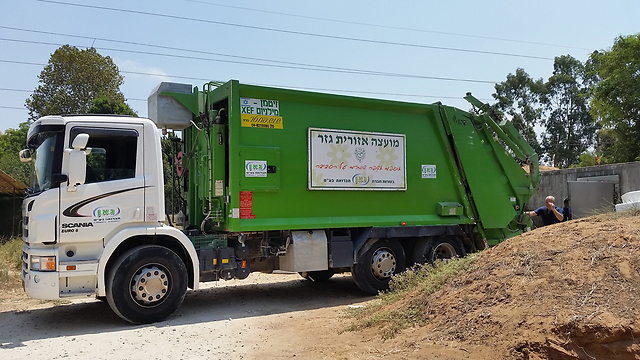
Director of Bereshit Milk, Eyal Lifshitz, says the plant held a semi-annual review two weeks ago by the Veterinary Service. "I am a scientist who researches and uses camel's milk for medical purposes, and the results of the review were completely normal," said Lifshitz. "I know the case. A mother who took the milk once called to say they found brucella bacteria in her child's blood. There is no brucella in camel's milk. The milk is inspected, the camels are inspected."
Lifshitz went on to describe that the milk "passed tests at Aminolab laboratories, which is one of the best food laboratories, and other labs as well. The milk is used for research, for cancer patients, and saves lives. We will need to consider our options, but there is no brucella in camel's milk, not in theory nor in practice."










